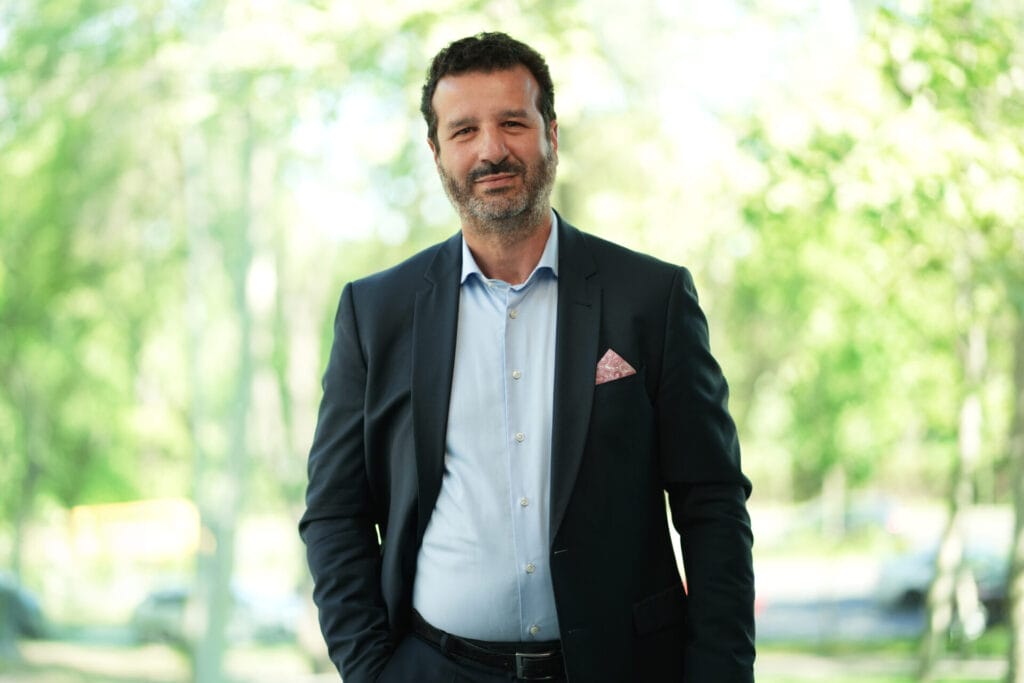Electricity Grids as an Enabler of the Energy Transition
The world of energy is undergoing a profound transformation. We are living through what is known as the energy transition, a shift that is often perceived as abstract but is, in fact, quite concrete. This transition refers to the increasing use of electricity in various sectors to replace fossil fuels, marking a significant step toward a cleaner and more sustainable energy future.
Electrification Across Sectors
The effects of electrification are becoming increasingly visible in everyday life. From electric vehicles in transportation to heating and cooling systems in homes, and even in the way we prepare food, electricity is taking center stage. In Romania, many households are already generating at least part of the electricity they consume, a trend that highlights the growing role of prosumers—individuals who both produce and consume energy.
Decisive Moments for Romania’s Energy Future
Romania is at a pivotal moment in deciding its energy future. The policies adopted today will shape the nation for the next 30 years. Energy projects, by their very nature, are long-term commitments that cannot be implemented overnight. Therefore, the time to act is now.
Failing to adopt the right public policies to support green energy and investment in electricity grids—which depend heavily on regulatory frameworks—would mean missing a critical opportunity for Romania. Without this support, the country risks falling behind others that are moving in the right direction, missing out on economic growth and improvements in the well-being of its population.
The Need for Digitalized and Resilient Grids
For green energy to reach consumers, a fundamental shift in how electricity grids are configured is essential. This transformation can only happen through digitalization. Future grids must not only be modernized but also reconfigured to manage electricity flows both to and from consumers. In a world where prosumers play an active role, grids need to be capable of distributing and managing energy in more dynamic ways than ever before.
Without a regulatory framework that incentivizes investment in this type of infrastructure, these goals will remain unfulfilled. The development of digitalized and resilient electricity distribution networks is crucial for Romania to thrive in an increasingly electrified economy.
Economic Growth Through Smart Grids
Countries that have invested heavily in renewable energy projects and electricity grids are reaping the rewards in the form of lower electricity prices. Spain, for instance, has emerged as a leader in this field, offering some of the best energy prices in Europe today.
Romania stands to benefit similarly if it acts quickly. Digitalized grids are not just about energy—they are economic growth enablers, and investing in them will enhance Romania’s competitiveness on the global stage.
Acting Now for a Sustainable Future
The window of opportunity is now. To achieve results by 2030, Romania must begin investing in clean energy production and grid integration immediately. This includes making the necessary upgrades to accommodate the energy produced by prosumers and ensuring that the energy is distributed efficiently to customers in an increasingly electrified economy.
The consequences of inaction are severe. If Romania fails to implement public policies that support green energy and grid investment, the country will miss its chance for economic growth and improved quality of life. More worryingly, it risks lagging behind countries that are moving ahead with the energy transition.
Long-Term Investments and Climate Impact
Energy projects are long-term by nature. If we do not invest in grids today, we will jeopardize the well-being of future generations. It is not just about energy; the stakes are also about mitigating the climate crisis, which is partly driven by high-carbon energy sectors. The consequences of continuing with business-as-usual—desertification, food and water shortages, extreme weather events, and rising temperatures—are already being felt, even in Romania.
The Cost of Inaction
The real cost is not in the energy transition itself but in the failure to transition. A future built on resilient, digitalized electricity grids and sustainable energy production will ensure economic prosperity, climate resilience, and a better quality of life for all. The decisions we make today will determine whether we seize this opportunity or sacrifice it.
Curated by PPC.















